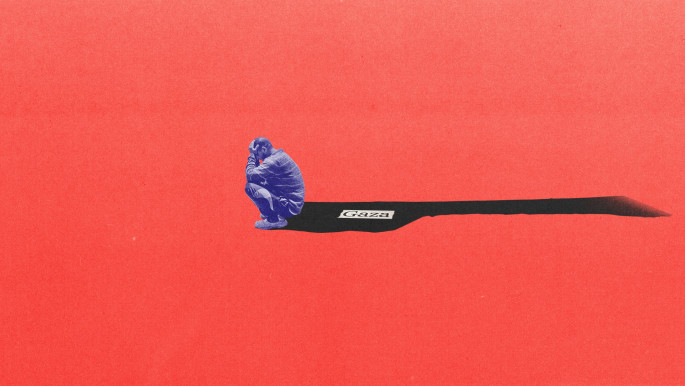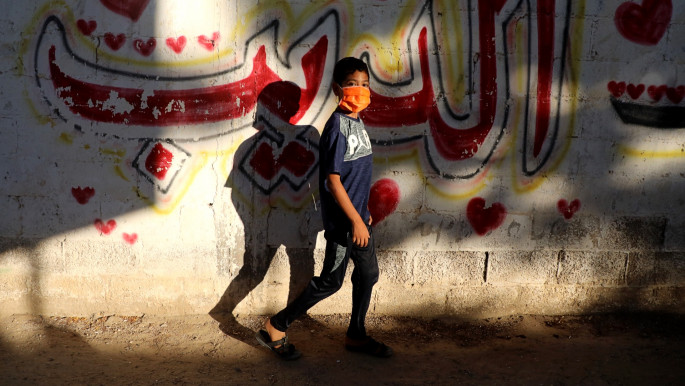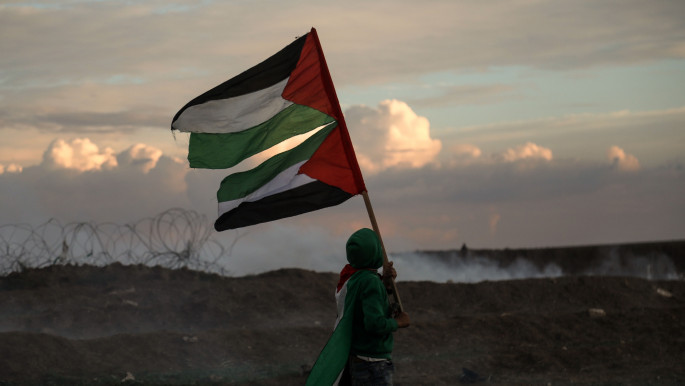Unending blockade: Gaza ceasefire reinstates Israel's preferred status quo
The truce came after Israel bombed the besieged enclave almost daily since 6 August in response to incendiary balloons launched by Palestinian factions to pressure Tel Aviv to lift its decade-long blockade.
The recent violence also saw Israel tightening its restrictions on Gaza after it closed the Kerem Shalom commercial crossing, halted fuel supplies, and barred Gaza's fishermen from going into the sea.
The ceasefire agreement stipulates that Hamas must prevent the launching of incendiary balloons as well as other disturbances on the Israeli border fence. In return, Israel has allowed a return to the status quo and ended its recent escalation-instigated punitive measures on Gaza.
Following the agreement, Israel allowed fuel supplies to re-enter the Gaza Strip, which improved Gaza's electricity supply from four to eight hours a day.
As part of the ceasefire agreement, brokered by Doha's envoy to Gaza Mohammad Al-Amadi, monthly Qatari aid will increase to $30 million this month. The money will contribute towards purchasing fuel, paying public sector salaries, and providing support for 100,000 destitute families.
 |
Lifting the blockade will strongly address the humanitarian needs of the population and provide for a far more sustainable calm |  |
Many Palestinians in Gaza, however, have expressed scepticism that the ceasefire deal has achieved anything significant in terms of alleviating the blockade.
Palestinian political expert Muhammad Shehada said that despite the efforts of Palestinian factions and Qatar to ease restrictions, Israel is attempting to manoeuvre a return to the "status quo of blockade" which will only result in the continuation of a cycle of destabilisation and confrontation.
 |
|
| Desperate and trapped, Gaza's youth turn to suicide |
"While Israel is adamant about restoring the status quo in Gaza, we have to keep in mind that this very inherently destabilising status quo is what led to the latest escalation, and previous escalation, in the first place," Shehada told The New Arab.
"Eight hours of electricity, a limited fishing zone, a restricted flow of imports and exports and allowing Qatar to distribute $100 handouts to Gazan poor families is nothing close to a normal and dignified life," he added.
"Gaza's problem is political par excellence. Humanitarian solutions will always remain tentative in the face of political predicaments, whereas a political solution in the form of lifting the blockade will strongly address the humanitarian needs of the population and provide for a far more sustainable calm."
The indirect negotiations between Palestinian factions in Gaza, led by Hamas, and Israel over easing the blockade started in 2018 following the momentum of the March of Return protests.
Multiple understandings were reached in the past two years between the two sides with the mediation of Qatar, Egypt and the UN. The understandings stated that Hamas controls and terminates all activities near the Israeli border in return for Israel's alleviation of the blockade. But Palestinian factions accuse Israel of continuing to renege on the understandings over the past two years.
 |
We are no longer on the edge of a humanitarian crisis, but in the middle of one |  |
This newly announced ceasefire could be the same, whereby Israel gives verbal promises to mediators and then reneges on them, Palestinian analysts fear.
As part of the newly announced ceasefire, Hamas said that "a number of projects that serve our people in the Gaza Strip will be announced." Israeli newspaper, Yedioth Ahronoth, said on Tuesday, however, that no agreement has been reached on any projects, and that there would be negotiations on them later on.
Ahmed Minawi, a Palestinian political analyst, believes that the agreement between Hamas and Israel "didn't bring anything new or significant on the ground. And it was merely theoretical promises without any guarantees."
Minawi told The New Arab that Hamas couldn't go the extra mile in the escalation and negotiations due to the recent Covid-19 outbreak in the Gaza Strip and the severe punitive measures that Israel implemented.
 |
|
| Read more: Under blockade and bombs, Gazans fear Covid-19 disaster |
Hamas deputy head, Khalil al-Hayya, suggested on Tuesday that if Israel does not fulfil the terms of the ceasefire agreement within two months, there would be another round of escalation. "Our demand is for the occupation to follow all the prior agreements without any delay," he said in an interview with official Hamas al-Aqsa TV. "We will give the occupation two months, and we will monitor its behaviour in implementing projects and bringing in other projects."
Al-Hayya indicated that while the escalation was going on Palestinian factions in Gaza planned to pressure Israel to commit to previous agreements and ease the blockade with all the tools at their disposal, including returning to the border protests, but said that the emergence of the coronavirus pandemic inside Gaza prevented such measures.
Several agreements from previous understandings reached over the past two years have yet to be implemented. They include; extending a new power line to the Gaza Strip, allowing Gaza's power plant to operate on gas; facilitating export and import movements; allowing the entry of 1,200 trucks per day through the Kerem Shalom crossing; establishing two industrial zones, and allowing Gazan labourers to work in Israel.
 |
Instead of meaningful steps to end the blockade of Gaza to relieve civilians, Israel has maintained its tight grip |  |
Waiting for the next escalation
Over the past two years, over a dozen rounds of fighting have taken place between Palestinian factions in Gaza and Israel, the most recent of which came amid the backdrop of mass border protests demanding the lifting of the blockade.
The ceasefire deal also comes amid the spread of the coronavirus pandemic in Gaza, with dozens of new cases everyday threatening another humanitarian crisis for the densely populated territory.
 |
|
| How the Israel-UAE alliance formalises new fault lines in the Middle East |
Michael Lynk, the UN Human Rights Council's special rapporteur on the occupied Palestinian territories, welcomed the announcement of the truce, but cautioned that "true peace will come only with the full respect of the fundamental rights of the two million Palestinians living there."
"Instead of meaningful steps to end the blockade of Gaza to relieve civilians, Israel has maintained its tight grip. We are no longer on the edge of a humanitarian crisis, but in the middle of one. This is purely a human-made disaster, and could be quickly reversed if the political will existed," said Lynk.
Gaza requires not temporary band-aids but an end to the blockade, he said, and tools to chart the course to economic development and self-determination with the rest of Palestine. "Providing Gazans with hope for the future and a genuine path to prosperity and freedom will go a long way to answering Israel's security concerns."
Beyond lifting the blockade, he called for the construction of a Gaza seaport, new power, water and sewage treatment plants, access for the Palestinian Authority to the Gaza Marine natural gas field off Gaza's coast, a substantial increase in export permits from Gaza and work permits in Israel, an industrial zone, the entry of much larger quantities of construction materials, and freedom of movement for Gazans.
"The announced truce has to be the first step towards the full realization of human rights in Gaza, and not another temporary step waiting for the next round of hostilities," Lynk said.
Ali Adam is a journalist and researcher whose work focuses on issues linked to the Israeli-Palestinian conflict.
Follow him on Twitter @_Ali_Adam_





 Follow the Middle East's top stories in English at The New Arab on Google News
Follow the Middle East's top stories in English at The New Arab on Google News


